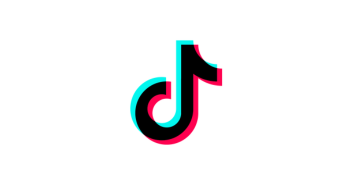
| Pricing Model | Performance-based |
|---|
The best marketing software and sales tools are a game-changer for businesses. This software helps streamline operations, boost engagement, and drive revenue.
But how do you pick the right one? This article cuts through the noise to help you find the best tool for your needs, whether you’re a freelancer, a self-employed professional, or a growing business.
Choosing the right sales and marketing software can feel overwhelming. The market is flooded with options, each promising to be the silver bullet for your business. However, not all tools are created equal. Some are clunky, overpriced, or just plain confusing. We've done the research and handpicked the top solutions for 2025. See them below.

| Pricing Model | Performance-based |
|---|
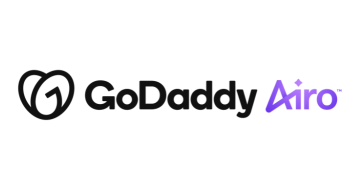
| Starting Price | $11.99/mo |
|---|---|
| Pricing Model | Per user bundled |
| Free Trial | No |
| Free Version | No |
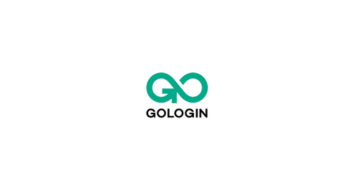
| Starting price | $49/month |
|---|---|
| Free Version | Yes |
| Free Trial | Yes |
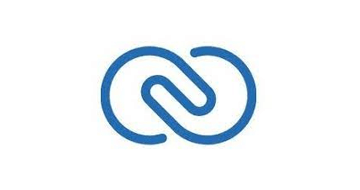
| Starting price | $14/user/month |
|---|---|
| Pricing model | Tiered per user |
| Free Trial | 15-day |
| Free Version | Yes (3 users) |
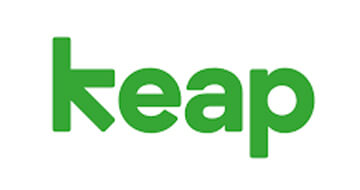
| Starting Price | $40/mo |
|---|---|
| Pricing Model | Subscriber based |
| Free Trial | 14-day |
| Free Version | No |
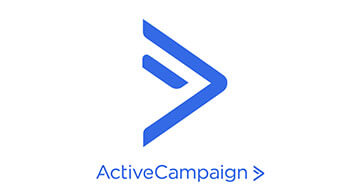
| Starting Price | $11/mo |
|---|---|
| Pricing Model | Per User |
| Free Trial | 14-day |
| Free Version | No |
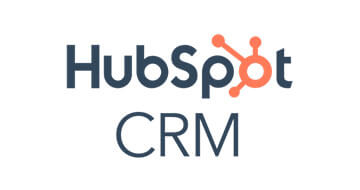
| Starting price | $45/mo |
|---|---|
| Pricing model | Tiered |
| Free Trial | 14-days |
| Free Version | Free (lite) version |
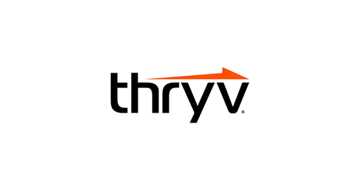
| Starting price | Quote only |
|---|---|
| Pricing model | User-based |
| Free Trial | 7-day |
| Free Version | No |
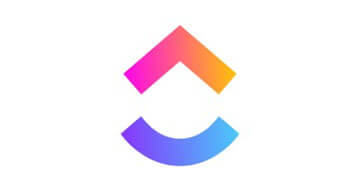
| Starting price | $9/mo |
|---|---|
| Pricing model | Per User |
| Free Trial | No |
| Free Version | Yes |
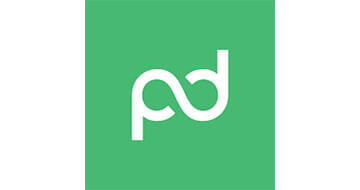
| Starting price | $29/mo |
|---|---|
| Pricing model | Per User |
| Free Trial | 14-day |
| Free Version | Yes |

Why We Picked It: HubSpot CRM is one of the best sales and marketing software in the world. With its comprehensive tools, intuitive interface, and powerful automation, it’s built to make your life easier. You can store up to a million contacts and companies and invite your entire team to collaborate in one place.
| Pros | Cons |
|---|---|
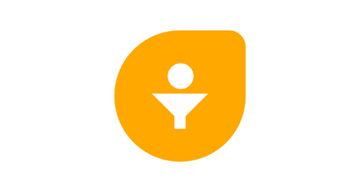
Why We Picked It: With its clean, user-friendly interface, there’s no steep learning curve, just straightforward contact management and automated follow-ups. Freshsales offers free and affordable pricing for single users (starting at $9). That means freelancers can get powerful CRM features without breaking the bank.
| Pros | Cons |
|---|---|
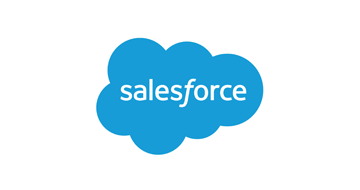
Why We Picked It: Salesforce CRM is the best sales software for small businesses. It offers a special SMB package. This plan helps you organize data, manage customer relationships, and gain business insights. If you’re looking to scale, Salesforce gives you the extra firepower to manage growth effectively.
| Pros | Cons |
|---|---|
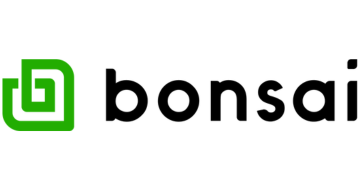
Why We Picked It: For just $9 per user/month (billed annually), Bonsai‘s Basic plan covers time tracking, task management, unlimited projects, CRM, and a mobile app. Higher-tier plans add invoicing, expense tracking, and advanced reporting—so you can scale affordably.
| Pros | Cons |
|---|---|
Sales and marketing software refers to a suite of digital tools that help businesses manage customer relationships, streamline sales processes, and execute marketing campaigns effectively. These tools centralize customer data, automate repetitive tasks, and provide key insights.
Instead of manually sending emails, posting on social media, or nurturing leads one by one, these platforms do the heavy lifting for you. They automate email marketing, schedule social posts, and track customer interactions in real-time. This approach frees up time for your team to focus on strategy, creativity, and closing deals.
Sales and marketing software streamlines operations by automating various tasks. Here’s how it works:
Implementing sales and marketing software offers a multitude of advantages:
A unified platform bridges the gap between sales and marketing teams. With these tools, both teams can see each other’s activities, align on goals, and eliminate duplicate efforts.
A centralized database keeps customer data and interactions in one place. This unified arrangement makes it easier to manage schedules and track conversations. No more scattered notes or missed follow-ups.
Automated emails, reminders, and data updates free up your team’s time, so they can focus on closing deals and driving growth instead of drowning in repetitive tasks like data entry and follow-ups.
Not all leads are created equal. Integrated lead scoring helps businesses focus on high-potential prospects, boosting engagement and conversion rates. When marketing targets the right audience, sales teams can spend more time nurturing quality leads.
A strong CRM is the backbone of any sales and marketing platform. It centralizes customer data, tracks interactions, and helps manage relationships with ease. The best sales and marketing software has CRM features that help businesses deliver personalized experiences that build loyalty.
A solid platform should enable you to design, send, and track campaigns effortlessly. Whether you’re nurturing leads or launching a promo, email marketing keeps your brand front and center.
The right software captures, organizes, and tracks prospects as they move through your sales funnel. With automated lead scoring and tracking, you can focus on high-potential customers and boost conversions.
Pipeline management tools give you a bird’s-eye view of your sales process. It shows you where deals stand, where bottlenecks are, and how to forecast revenue. It’s like having a sales roadmap that helps you close deals faster.
Automated email follow-ups, social media posts, and lead nurturing ensure that you don’t waste time on repetitive tasks. This feature is popular with eCommerce or B2B brands. It helps them deliver the right message at the right time.
A built-in social media manager lets you schedule posts, track engagement, and respond in real-time, all from one dashboard. This feature is particularly beneficial for businesses managing multiple platforms at once.
Comprehensive analytics track customer behavior, campaign performance, and sales trends. With real-time data at your fingertips, you can optimize strategies and prove ROI.
Your sales and marketing software shouldn’t work in isolation. It should connect freely with eCommerce platforms, accounting tools, and customer support systems. This ensures smooth operations and reduces manual data entry.
Choosing the right sales and marketing software is important. Follow these steps to navigate this process effectively:
Before jumping into software shopping, take a step back to understand the challenges and goals of your sales and marketing teams. Maybe your team struggles with tracking customer interactions. If so, a CRM could be the missing puzzle piece. Or perhaps manual follow-ups are eating up too much time, automation tools can fix that.
Now that you know what you need, it’s time to match those needs with the right features. Look for software that checks all the right boxes such as CRM, email marketing, lead management, and pipeline management:
Your software should fit right in with your current setup. Take stock of the tools you already use, like eCommerce platforms, accounting software, or customer service solutions. Then, check if your new software connects well with them. Ensure the software offers robust Application Programming Interfaces (APIs) for custom integrations if needed.
Even the most powerful tool wouldn’t be effective if your team hates using it. That’s why ease of use matters. Test out the new software. Let your team try its key features and see how intuitive it feels.
It’s important to understand the total cost of ownership and the software’s ability to scale with your business. Besides the initial cost, you have to factor in other expenses including licensing fees, implementation, training, and maintenance. Assess whether the software can accommodate business growth without significant additional investment.
MORE: SaaS pricing models.
Proper configuration is crucial for effective lead management, campaign automation, and sales performance tracking. Follow these steps:
1. Map Your Customer Journey: Understand the stages your customers go through, from awareness to purchase, to tailor your software accordingly.
2. Define Business Processes and Pipelines: Outline your sales and marketing workflows to ensure the software aligns with your operations.
3. Customize Fields and Automation: Adapt the software’s fields, pipelines, and automation features to match your specific needs.
4. Import Customer Data: Migrate existing customer information into the new system, ensuring data accuracy and completeness.
5. Segment Your Customers: Organize contacts into categories based on criteria like demographics or behavior to personalize marketing efforts.
6. Integrate with Other Tools: Connect the software with existing applications (e.g., email platforms, social media) for seamless data flow.
7. Assign Roles and Train Your Team: Define user roles within the software and provide comprehensive training to ensure effective use.
Access to quality training materials and responsive customer support is vital for successful software adoption. Use tutorials, knowledge bases, and customer education programs to empower your team. Effective training enhances product adoption, reduces support costs, and improves customer retention.
Here are a few things to consider if you want to make the most of a software deal:
Free sales tools are fantastic. Since they cost nothing and are often easy to use, it makes them the perfect sales software for small businesses on a tight budget. They typically handle basic features such as contact management, simple campaign tracking, and maybe even a little automation.
However, free versions usually come with limitations. With these tools, you’ll get restricted features, capped data storage, and minimal customer support.
Paid software, on the other hand, gives you the full package. More features, better scalability, and actual customer support when you need it. For businesses serious about growth, investing in a premium plan often pays off in efficiency and results.
A software’s monthly subscription fee is just the beginning. The real cost of sales and marketing software goes beyond that. Implementation fees, training costs, customization, and ongoing maintenance can all add up.
Understanding the full financial picture upfront helps you avoid unpleasant surprises. The goal isn’t just to pick the cheapest option, it’s to find the software that delivers the most value without blowing your budget.
Here’s how to make every dollar count. First, don’t pay for what you don’t need. It’s easy to get lured in by flashy features, but do they actually help your business? Identify must-haves versus nice-to-haves so you’re not shelling out for tools you’ll never use.
Next, look for bundled deals. Some vendors package multiple tools together at a lower price. Why pay for separate CRM, email marketing, and automation software when you can get them all in one?
Finally, don’t just accept the listed price. Software pricing is often negotiable, especially if you’re signing up for a long-term contract. Ask for discounts, better terms, or even bonus features. The worst they can say is no, but you might just land a better deal.
The landscape of sales and marketing software is rapidly evolving. Key trends shaping this evolution include:
Artificial intelligence (AI) and automation are taking center stage. The days of manual marketing guesswork are over. Companies are using this technology to streamline operations, personalize customer interactions, and make smarter decisions. With HubSpot, you have Breeze Copilot. It uses generative AI and your CRM data to elevate your work and execute tasks quickly.
Similarly, Salesforce has introduced Agentforce. It’s a generative AI initiative that creates autonomous virtual representatives for roles in sales, marketing, commerce, and customer service.
The integration of big data and advanced analytics into sales and marketing strategies empowers businesses to make informed decisions. Advanced analytics tools now allow businesses to dissect customer behavior, fine-tune campaigns, and personalize interactions like never before.
Nowadays customers don’t just interact with brands on one platform, they bounce between social media, email, websites, and even physical stores. The best sales and marketing tools ensure your messaging stays consistent across all channels.
Companies with robust omnichannel strategies achieve an average customer retention rate of 89 percent, compared to 33 percent for those with weaker approaches. Hence, it’s now common for sales and marketing software to unify multiple communication channels such as email, live chat, and social media.
Choosing the right sales and marketing software can be a game-changer for your business. We’ve covered the must-have features, how to pick the best fit, and the cutting-edge trends shaping the industry. But when it comes to the best overall option, one platform consistently rises to the top.
HubSpot CRM stands out as a powerhouse for businesses of all sizes. Its intuitive interface, robust marketing automation, and seamless scalability make it a solid choice whether you’re a startup or a Fortune 500 company. That said, there’s no one-size-fits-all solution. If you’re a freelancer or solo entrepreneur, you may prefer online sales software for small business. In that case, Freshsales might be your go-to. It offers AI-driven tools that simplify lead generation and customer management, without breaking the bank.
At the end of the day, your ideal software depends on your business needs. Consider pricing, scalability, and whether you need advanced AI or omnichannel marketing features. Always test before you commit. Free trials and demos are your best friend when making a decision.